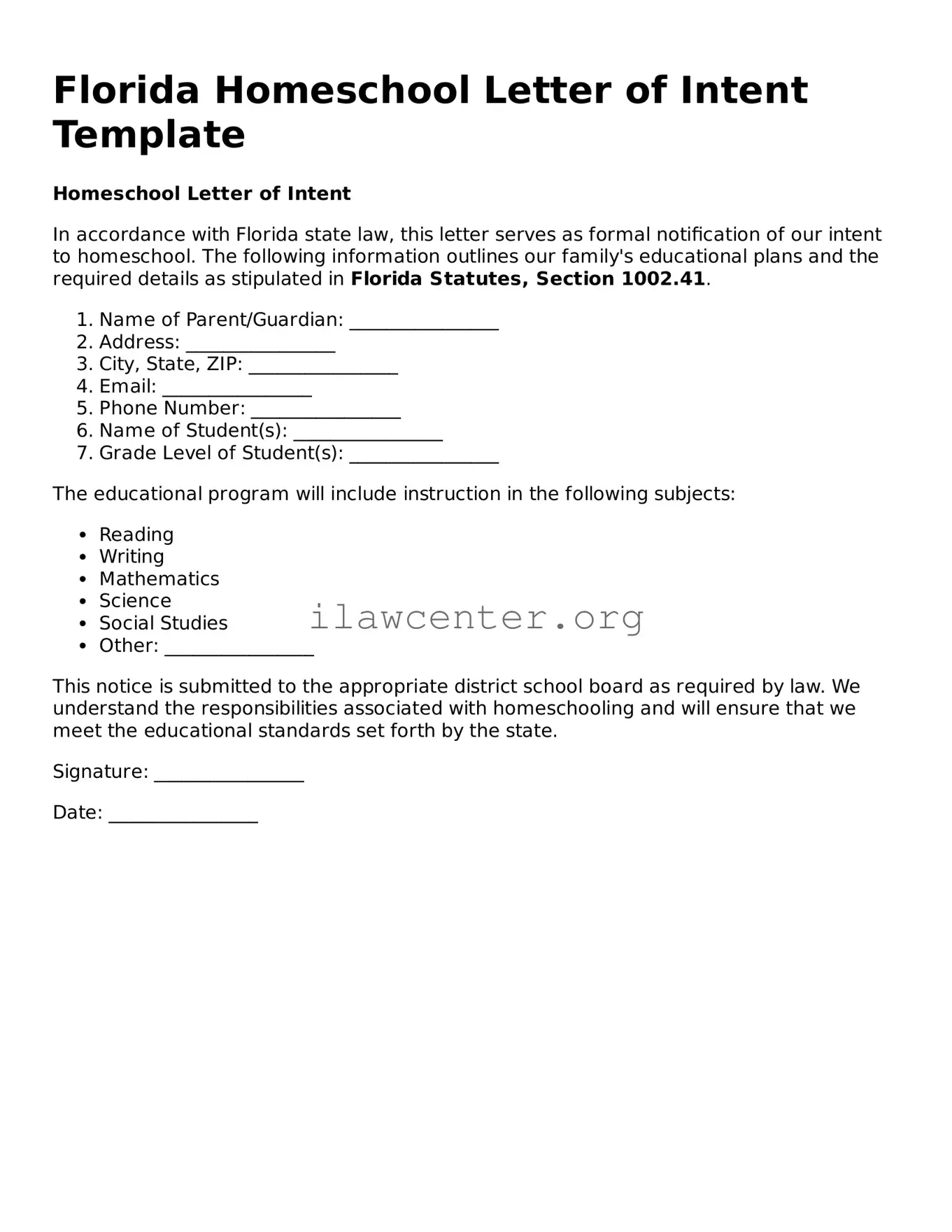Instructions on Utilizing Florida Homeschool Letter of Intent
Completing the Florida Homeschool Letter of Intent is an important step in establishing a homeschooling program for a child. After submitting this form, parents or guardians will be able to proceed with setting up their educational plans according to Florida state guidelines.
- Obtain a copy of the Florida Homeschool Letter of Intent form. This is typically available through the local school district’s website or office.
- Fill in the required personal information for the student. This includes the child's full name, date of birth, and any relevant identification numbers.
- Provide the parent or guardian’s information. Include your full name, address, and contact information. Ensure accuracy, as this will be the primary contact for any communications.
- Indicate the educational plan. Specify whether you will be following a specific curriculum, using online resources, or applying another method for homeschooling.
- Complete any additional sections of the form as required. Some forms may request information about the reason for homeschooling or the intended grade level.
- Review the completed form for any errors or omissions. Ensure all necessary fields are filled accurately.
- Sign and date the form in the designated area. This confirms that the information provided is true and that you intend to homeschool the specified child.
- Submit the form to the local school district. Delivery can typically be done via mail or in person, depending on local regulations.
